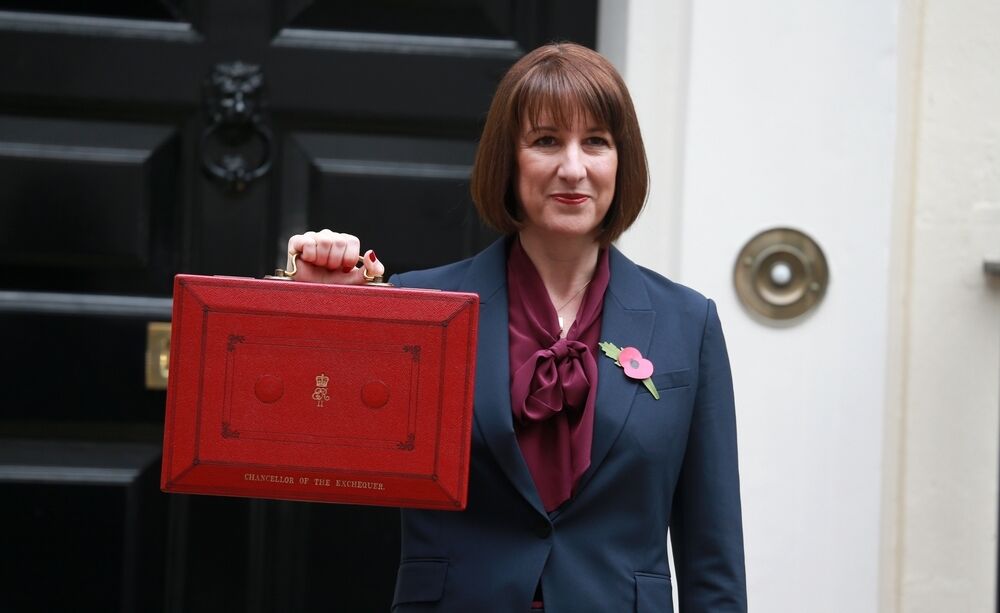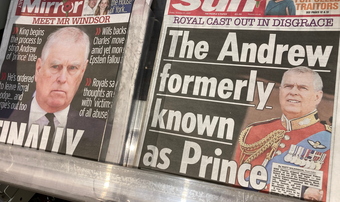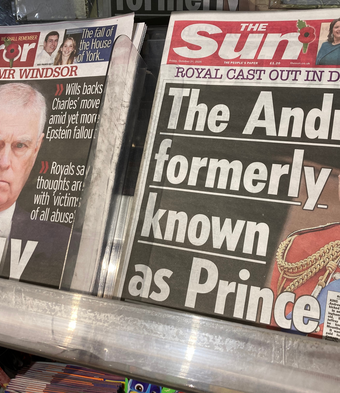A budget for the backbenchers: responding to Rachel Reeves and the tax rises

Disclaimer: CARE is strictly politically neutral. The views in this article of those of the author, and should not be taken as those of the organisation.
In 1789, the American statesman Benjamin Franklin wrote an often-parodied phrase: “Our new Constitution is now established, and has an appearance that promises permanency; but in this world nothing can be said to be certain, except death and taxes.”
It’s budget time, and for weeks the papers had been speculating which levers the Chancellor, Rachel Reeves, might pull. A 2p rise in income tax? An increase in National Insurance? A wealth tax? All seemingly were being publicly floated, like throwing mud at the wall to see what would stick. I’m not sure that the run-up to a budget has ever been quite so publicly dissected; and that was certainly the case on the day itself, when the OBR (accidentally?) published the entire thing in full before the beleaguered Chancellor could even announce it to the House of Commons.
This Government is already the least popular on record for this stage of a Parliamentary term (although, in fairness, we seem to be saying that every time there is a new government these days). For all the talk of the Conservatives facing an existential threat in the shape of Nigel Farage’s Reform Party, Labour are also on the ropes, and according to one poll today, are actually polling below the Tories now, down to just 15%. They are being squeezed by both Left and Right; last week it was the impressive Shabana Mahmood’s turn, attempting to ward off concerns around Immigration.
But it’s not just Farage who Labour have to worry about; they do not just sit behind Reform and the Tories, but the Greens as well, who have experienced a significant upturn in fortune since appointing Zack Polanski as their leader. It was noteworthy that Ms Reeves felt the need to attack Mr Polanski in her speech: “I know that the leader of the Green Party is a keen hypnotherapist, and he believes that he can achieve remarkable things using only the power of his mind. Unfortunately, the only things getting bigger under his approach would be the deficit and the rate of inflation.” If you’re wondering what all that is about, the leader of the Party which is currently second in the polls used to be a hypnotherapist, who courted controversy for running sessions in which he suggested he could enlarge women’s breast sizes…
But back to the Budget. We were presented with a smorgasbord of tax increases, nicknamed ‘the dirty dozen’ by The Telegraph. The headline moves included:
Freezing the tax thresholds: the threshold for paying 20% income tax will be kept at £12,750, and the thresholds for paying 40% and 45% income tax, will be frozen for another three years beyond 2028. Freezing the thresholds is expected to raise £13 billion/year, and will mean more people being dragged into higher tax bands, as the thresholds will not rise with inflation.
Cutting tax breaks on salary-sacrificed pension contributions; these will now be taxed after £2,000/year. This is expected to raise £4.7 billion in 2029 and £2.6 billion in 2030.
A so-called ‘Mansion tax’, which will mean owners of properties worth in excess of £2 million facing a council tax ‘surcharge’.
Reducing the amount which can be saved in a cash ISA from £20,000 to £12,000 from April 2027.
Owners of electric vehicles being charged 3p/mile from 2028-29. This will cost the average drive £255/year in Year 1.
A range of other tax rises, including raising the rate of remote gaming duty from 21% to 40%, closing loopholes for taxes on companies like Uber and Bolt, giving regional mayors the opportunity to introduce tourist taxes, and making pre-packaged milkshakes and lattes subject to the sugar tax.
Sound comprehensive? That’s because it is. Britain was once the country of make-do-and-mend. Now it’s all about tax and spend.
Broken promises
A clip from last year’s General Election debate was doing the rounds on Twitter earlier in the week: “Labour will raise taxes; it’s in their DNA. Your work, your car, your pension. You name it, Labour will tax it.” It sounds quite prescient now, doesn’t it? The words of Rishi Sunak, doomed to speak the truth but never be believed…
It’s important to give some balance here: the Tories had themselves raised the tax burden to a post-World War 2 high, reeling from a pandemic and an unexpected war in Europe. And say what you like about Rachel Reeves, the markets aren’t going into a meltdown like they did in the aftermath of Liz Truss and the KamiKwasi budget (named after the then-Chancellor Kwasi Kwarteng) in 2022.
But people can be forgiven for feeling let down: in their manifesto before the 2024 General Election, Labour had promised not to raise taxes on ‘working people’. I know it’s the Ashes at the moment, but you need more spin than Shane Warne at the SCG to claim, as certain Labour figures are doing, that that promise hasn’t been broken. For what it’s worth, 57% of voters think that the Budget tax rises have broken Labour’s pre-election pledge; only 16% disagreed. Even among those who actually voted for Labour at the last election, that figure only rose to 25%.
And that’s not even talking about last year’s Budget, when the Chancellor claimed that she was only raising taxes to fix a supposed £22 billion black hole (as opposed to, for example, caving into the unionised demands from junior doctors who were demanding pay rises of 29%. To his credit, Wes Streeting has held firm against similarly extortionate demands from them this year.). She said at the time that it was a one-off, and wouldn’t be doing it again. Well, now that's £60 billion of tax rises in two years...
It’s interesting to note that, whatever the country’s frustrations with 14 years of Conservative government (and they are considerable), they are holding Rachel Reeves to account for what’s happening here and now: YouGov found that 37% of voters think that the tax rises are due to Labour’s own choices, as opposed to 16% who blame the Conservatives. There is only so long you can blame others, without taking responsibility yourself.
The irony of all this is that the Office for Budget Responsibility announced today that - despite briefings from Rachel Reeves that she needed to raise money to fill a hole in Britain’s finances - the Government were actually sitting on a surplus of £4.2 billion (and that they knew it from October 27th).
On October 31st, she told the nation: “What I want people to understand ahead of that budget, is the circumstances we face…I could…sweep those challenges under the carpet. I am being honest with people.”
Paul Johnson, the former head of the thinktank, the Institute for Fiscal Studies, commented: “I think it probably was misleading…It was designed to confirm a narrative that there was a fiscal black hole that needed to be filled with significant tax rises. In fact, as she knew at the time, no such hole existed.”
Promises and pledges, and speaking with truth and integrity. These things matter. They should matter to everyone (and ultimately, it will be up to the country to judge the Government on its performance at the ballot box in 2029). But they particularly matter to us as Christians. We believe in keeping promises. Jesus told his disciples, “Let your ‘Yes’ be ‘Yes,’ and your ‘No,’ ‘No.’ For whatever is more than these is from the evil one.” We all recognise the temptation to spin the narrative to get out of difficulty, but as Christians, we aspire to be better than that, to love truth and to abhor falsehood.
Labour politicians might try and pretend that their promises have not technically been broken (as they tried to claim last time, when redefining the notion of a ‘working person’; but as Christians, we don’t just believe in the letter of the law, but in the spirit of it too. Jesus made that principle quite clear when addressing the Pharisees, whether it be in disputes over healing on the sabbath, or telling them that regardless of their tithes, they were neglecting “the more important matters of the law—justice, mercy and faithfulness.”
There’s no easy get-out clause or escaping on a technicality in God’s Kingdom.
A political choice
In previous write-ups after Budgets, our CEO Ross Hendry has described the Budget as a ‘moral document’. I think that is a very helpful way of thinking about things, for Budgets reflect the priorities we think our nation ought to have, both in terms of where we raise our money, and how we think it should be spent. There is no Magic Money Tree: we only have finite resources to apportion, and each Budget declares what we think our priorities are (and are not).
But Budgets are not just moral documents. They are also political documents. And this Budget reveals quite a lot about the state of the current Government and the strength of Keir Starmer and Rachel Reeves, or perhaps more pertinently, the lack thereof.
The big headline from this budget, in my view, is not so much that Labour are raising taxes, but is around what Labour are raising taxes for. Tax rises are not in and of themselves a bad thing; there can be good reasons why a government might need to raise more money.
But the interesting thing in this particular case is where the extra money is going: primarily into welfare measures. By 2030, the welfare Bill will have risen by £16 billion/year (against £26 billion in tax rises), and will account for almost 32% of your tax bill (compared to 10.3% on education, 6.2% on foreign affairs and defence, 4.3% on transport and just 2.1% on housing). This includes uprating the triple-lock for pensioners, increasing the rate of working-age benefits in line with inflation, reversing the cuts to winter fuel payments, and abolishing the two-child benefit cap.
We might think that some of those moves are good steps: I think that abolishing the two-child benefit cap is a very positive move, for example, and is forecast to mean that 500,000 children are lifted out of poverty. Interestingly, evangelical Christians tend to support its abolition, whereas the average voter is likely to be in favour of retaining it. Even though I agree with it, a popular move it is not.
I tend to think that some of the other policies are not so positive: why Labour should raise benefits in line with inflation for people who are not working, when the income tax thresholds are being frozen for workers and we are in a productivity crisis, is beyond me. It has been interesting (and I have mixed emotions about this, given she has quite openly said that she is not a Christian) to note Kemi Badenoch, the Conservative leader, invoking the words of 2 Thessalonians 3 in recent weeks as she makes the case for welfare cuts: “The one who is unwilling to work shall not eat.”
But in a sense, regardless of what you think of the policies, what this really reveals is a weak government. If you think back to the summer, one of the Labour Government’s big priorities was attempting to cut the cost of Welfare, not to increase it further.
At the time, the Government made an initial, relatively modest attempt at reform. This included things like:
raising the thresholds to qualify for Pip payments; these are the regular payments to help quality of life for disabled people.
freezing the money available for health conditions in universal credit, rather than raising it in line with inflation.
spending an extra £1 billion on supporting people back into work. This included a guarantee of training or employment for 18-21-year-olds.
The proposals led to a widespread backlash among the Labour benches; the Labour Party has a long, established support for the Welfare State, from Clement Attlee’s post-war reforms to the introduction of the minimum wage under New Labour (something which, incidentally they have raised again; it sounds great on paper, until employers start cutting jobs to compensate for it...). Eventually the Government, faced with the prospect of actually losing the vote, despite having an enormous majority, was forced to make a series of concessions.
In the summer, the Prime Minister and Chancellor were making the case that it was not ‘moral’ to have such a high welfare Bill, and to penalise workers to such an extent while giving such generous benefits to some (not all) who arguably did not need them. Since then the rumours that Keir Starmer will be replaced in the next year have only continued to grow. The position of the Prime Minister and Chancellor is so weak at this point that they have not made what they claimed they believed was the moral choice.
They’ve made a political one. As we’ve written several times before, this is a Government with no real vision, making u-turns in the face of opposition rather than sticking to clear principles. And this is a budget designed to appease the Labour backbenchers, and to shore up the Government’s own position.
So where does this leave us?
What should we make of all of this as Christians? Perhaps you lean to the left and you are supportive of the Government’s decisions (even if not the process they have taken to get there!). Perhaps you think poorly of the Government, and you oppose the latest tax rises. Or maybe you don’t mind who is in Government, but you are anxious about the impact upon your own finances as a result of the new measures.
Ultimately, what we can do is limited; we express our views when we vote once every five years or so; and we can write to our political representatives to encourage them or to challenge them.
But beyond that, our response to taxes, whether high or low, should be the same: we submit to them!
Paul writes in Romans 13: “Let everyone be subject to the governing authorities, for there is no authority except that which God has established. The authorities that exist have been established by God. Consequently, whoever rebels against the authority is rebelling against what God has instituted, and those who do so will bring judgment on themselves.”
God calls us to submit to rulers; because submitting to them is part of what it means to submit to Him. Our behaviour towards them doesn’t simply consist of a human dimension. Being part of God’s kingdom does not mean that we’re not also part of the United Kingdom; the rulers which have been established are legitimate, and their authority is real. We do submit to the law, whether it’s buying tv licences, following employment laws, or cycling with lights on at night; and we do pay our taxes, even if they go up in the Budget.
Paul continues: “This is also why you pay taxes, for the authorities are God’s servants, who give their full time to governing. Give to everyone what you owe them: If you owe taxes, pay taxes; if revenue, then revenue; if respect, then respect; if honour, then honour.”
It makes no difference whether we think the government is good or bad: Paul was writing to a church in Rome, the same Rome which had conquered Israel, crushed opposition, and which began to persecute Christians. The powers Paul encouraged Christians to submit to were the same powers that nailed Jesus to a cross. And it makes no difference whether we like the tax rises or not: simply disagreeing with something isn’t a good reason for disobedience. We are to “give to Caesar what belongs to Caesar”.
And continue to pray for the Government, regardless of whether or not you like them. Pray that our leaders might have integrity, and keep their promises. Pray for wisdom, for the questions our Government is facing - around economics, immigration, global security - do not have easy answers. And pray that our nation - regardless of whether taxes are high or low - might increasingly reflect the heart of Jesus, who rules with both justice and mercy.






